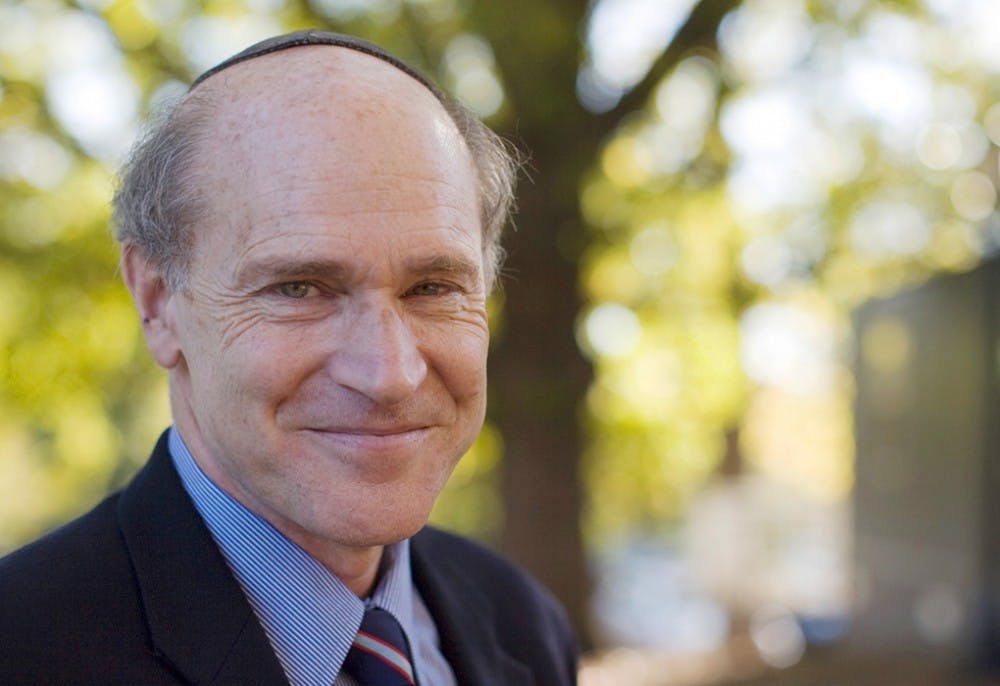University Professor of Practice Jerry White founded the Global Covenant of Religions last spring to combat international religious violence.
White founded the organization with University Religious Studies Prof. Peter Ochs and University of Cambridge Prof. David Ford after overseeing a new bureau on religious violence as Deputy Assistant Secretary of State.
White came up with the idea while working in the state department, when he realized that nobody is making a great effort to stop religious wars, Ochs said.
“Even if an army stops some war physically, during the peace process, the religious part of the war still returns. People are still fighting over something so we’re not getting to the solution,” Ochs said.
White hypothesized that governments, inter-religious groups and civil society groups need to work together instead of solving these problems as separate entities. With this idea in mind, he left the State Department to found the Global Covenant of Religions with Ochs and Ford.
Ochs and Ford had previously co-founded the Society of Scriptural Reasoning, an organization which combines academics with religious studies and peacebuilding.
In addition to undertaking projects to combat religious violence, the covenant’s main goal is to connect people, Ochs said.
“What we hope to accomplish is not to become some enormous NGO, but to be more of a think tank and action tank that works by offering new models and new relationships to get other NGOs and other groups working in a more cooperative way,” Ochs said.
The founders of the covenant decided to set a three-year limit on any projects they undertake, which will include projects concerning refugee crises, protecting sacred sites and language uses.
“We want to have measurable effects,” Ochs said. “If, over time, we can’t display that the effect of our work actually reduced religious conflict, we will stop.”
However, if after the first three years, the preliminary projects yield measurable results, the covenant will undertake larger projects tackling the sources of religious violence.
Aside from the founders, the covenant consists of 20 University faculty members who are involved with answering questions on religion and politics. The faculty members are based in a wide range of disciplines, including nursing, data science, religious studies and sociology. There are also undergraduate and graduate students working on research spanning these disciplines.
Outside the University, about 400 leaders across the world — including those from Cambridge, the United Arab Emirates and the United Kingdom — are a part of the network as well.
The University is one of the centers with the most developed research activity, Ochs said. Graduate students are currently conducting field research and using data collection to study topics such as religious language use in religious groups and civil war and conflict in the Middle East.
Undergraduate students, through working in student committees, will also help. These students will work to create internships and generate a youth core to plan different forms of activism while working with White.
The student committees aim to help facilitate undergraduate involvement with the Global Covenant of Religions through research and activism, said fourth-year College student Kaitlin Pararas, chair of the undergraduate committee. Pararas became involved with the covenant after her professor contacted her about the opportunity, and she was interested in the covenant’s unique mission and its framework of ideas about religion.
“While there are a number of NGOs committed to this effort, GCR is unique in that it has put a strict three year limit on its operation — then it will self-terminate since there’s already a large proliferation of NGOs,” Pararas said. “The idea is that GCR is offering something unique and new and if that is not successful then the project will end.”
Currently, the covenant is working to publicize its efforts to more undergraduates and University faculty, Pararas said.
As a way to increase awareness of the organization’s efforts, White is holding a three-day lecture series this week which will introduce the topic of religious violence and the covenant’s mission. Each lecture focuses on a different project that the covenant is undertaking.
Tuesday’s lecture will detail the covenant’s project on protecting sacred sites, and Wednesday’s discussion will be on the covenant’s projects involving refugees across the Mediterranean and Jordan.
“U.Va. has already been the right kind of place to nurture this kind of research,” Ochs said. “The College is emphasizing engaged learning that connects the classroom to practice.”







